Webster’s Dictionary describes the word “melange” as “a mixture, a medley”. Executive Producer Tom D’Angora took that definition & ran with it, crafting the brand new serial Mélange, headlined by legendary Hollywood vixen Morgan Fairchild. It was important for D’Angora to craft a diverse and talented cast, and he has done that and then some. From historic soap stars like ABC darling Kristen Alderson & the swoon-worthy David Gregory to trans activist & actor Laith Ashley and Human Rights Foundation Ambassador Omar Sharif Jr, the chemistry between the cast is palpable and electric. I got the chance to sit down and chat with both D’Angora and the legendary Morgan Fairchild, and as they both reflected on the experience of bringing a new serial drama to life, Fairchild spoke at length about her work for equality, advocacy for the LGBT community, and why her work with HIV/AIDS remains her most important legacy of all.

Michael Cook: What bar is Mélange modeled after?
Tom D’Angora: One hundred percent-Stonewall. It’s a fictionalized story of the incredible history that happened @ Stonewall, as this is a different timeline. So much happened there and I was actually at Stonewall one night and thought “imagine if these walls could talk”..I started cooking up the story while sitting at Stonewall. I think that was in 2011; I can find notes and scribbles, but it was all about Morgan Fairchild. I would have scrapped it if she had had not said yes; it was always about Morgan.

MC: What story did you want to tell with Mélange?
TD: I wanted to do a serialized drama that was as inclusive as possible, but still followed the old formula of storytelling. I come from Massachusetts in a very liberal town and practically grew up in Provincetown. I am a supporter of inclusive programming that can still follow the formula of any other programming. It does not have to only deal with the issues that LGBTQ people deal with every day, we can deal with other topics. Right now, there are LGBTQ people worldwide on lockdown. That is not a gay issue, it is a human issue. I wanted to have a story that was truly a “melange” as far as the cast went and really tell old fashioned dramatic stories. I jus wanted to let it be told through the eyes of everybody so everyone is represented.
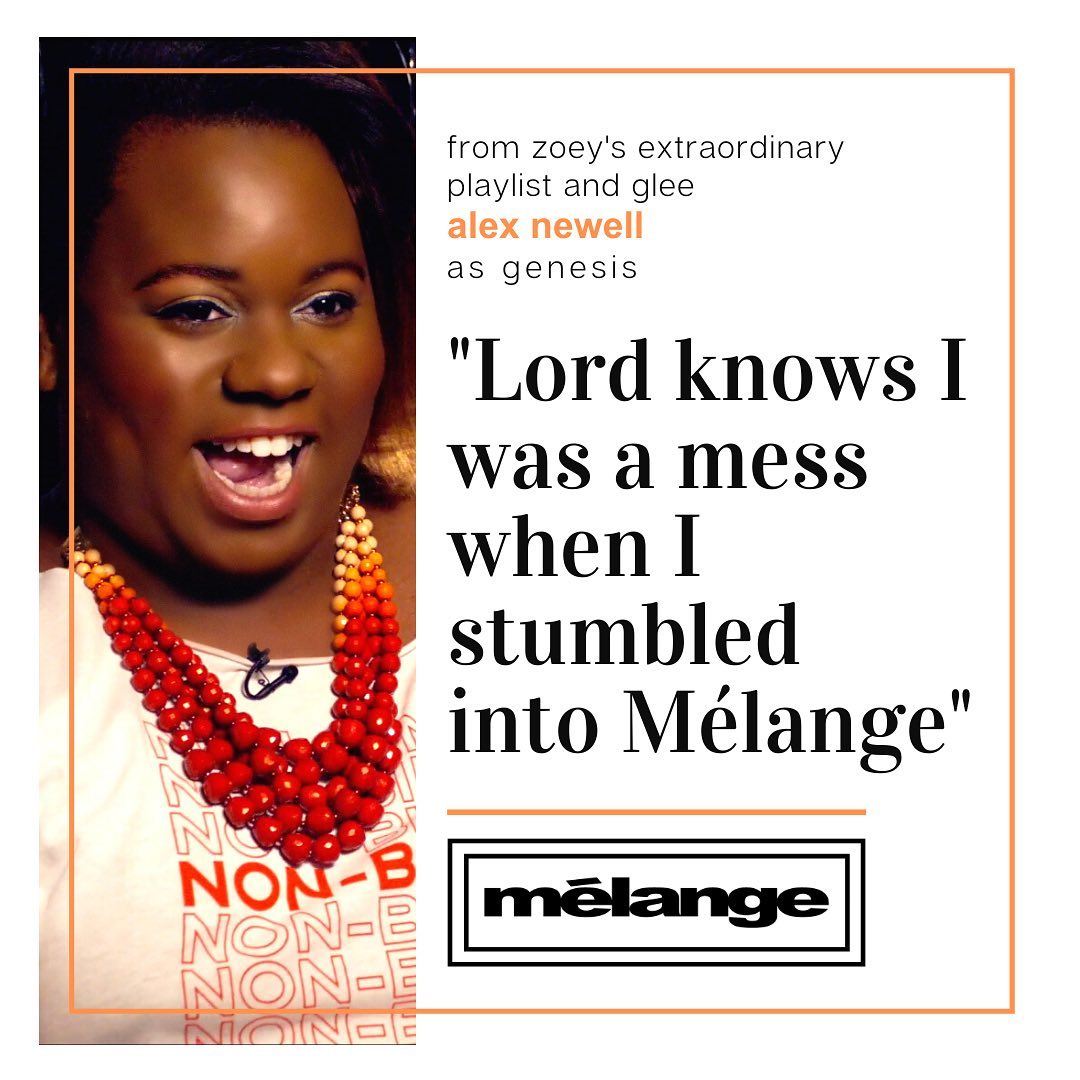
MC: Morgan what made you want to join the project when you initially read the script?
Morgan Fairchild: For me, I loved the script and felt that it covered a lot of territory; all of the characters really just jump off of the page at you. I thought it was really a fun approach to just tell the stories without making everything a gay theme. It was just gay people reacting in the regular world. I started off in the theater when I was ten. All of my friends were always he, she and other; I grew up that way. I knew that my gay friends were the same as my straight friends, and wanted the same things out of life, like families, kids and get married. I thought it was really important to tell the story that way and make it about real people who happen to be gay and work at this club. That is what make it fun about it; its a human interest story, with the gay element added. I loved all of the characters and my character Vivian King, is my over the top uber vixen/uber bitch!

MC: You had a turn on The City and popped unto General Hospital. Is the chance to play one of those uber vixens just too good to pass up?
MF: When I first got to Los Angeles, I had theater, Search for Tomorrow and Kojack, but my first audition was for a show that was a rip off of Carrie of sorts, called The Initiation of Sarah. Carrie had been cast, but there were two other roles. One was the sister, and the other was evil the sorority queen. I wanted to read for the sister and producer Chuck Fries told me I had the part of the sorority queen. I persisted and he said “Honey, you haven’t been here very long have you”? He went on to explain “I can find a good ingenue anywhere, but a good bitch is hard to find”. He said “the bad guy makes everything works. You play a great bitch and that’s what you’re gonna play”. It was the number one tv movie of the year that year and I’m queen bitch of everything (laughs)
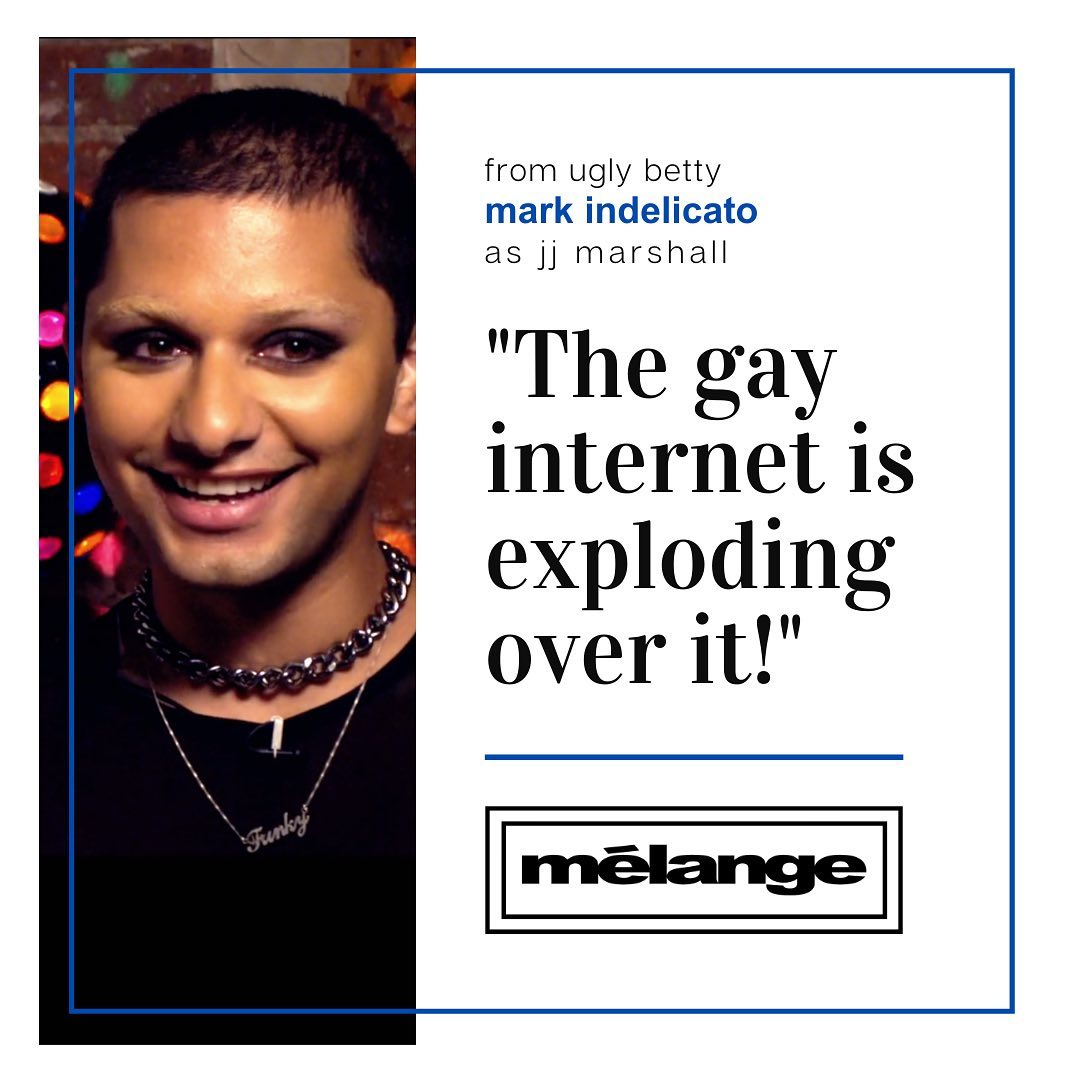
MC: Tell me about the latest uber bitch you’re portraying, Vivian King
MF: I just thought she was very interesting because she is very driven by the pain that the man she loved left her and she can’t accept that he was gay. The fact that he cared about her, but he did not love her the way that she wanted to be loved. She is just in pain and lashing out in any way that she can because of her pain. You kind of see a lot of that in the world going on today.
MC: You got to work with people from so many different avenues of the entertainment world. Were you able to impart any words of Hollywood wisdom to them?
MF: They are such a gorgeous and such a nice cast, they were all working very hard and are such a great group to work with. Everybody really had their heart in it and really cared and wanted to make it good. Between takes you get to sit down and talk to them and find out how nice and sweet they all are. Unfortunately no one really got to come to me, we were shooting so fast. I did get to have some nice chats with a few people. I had worked with Alex Newell previously on a project, so we knew each other. I also knew Omar Sharif Jr.’s grandfather, so we would sit and talk about that and about Egyptian politics. Everyone really bought something different to it. Everyone was gorgeous, but everyone came from a different background and brought something very different and unique.
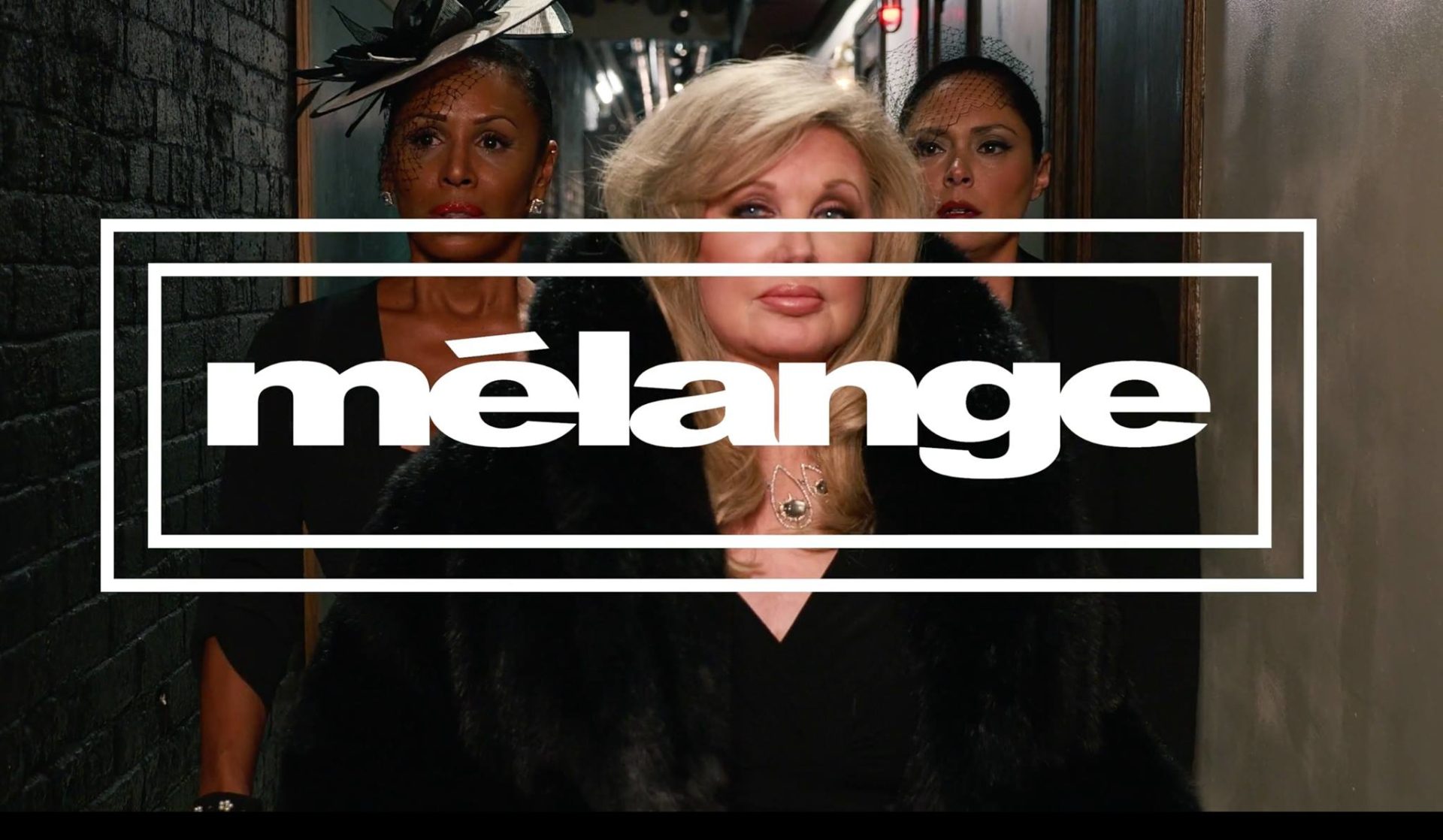
MC: Tom, you chose such a unique and diverse cast and seemed to choose roles that were tailor made for them. What made you choose the actors you chose for the roles in Melange?
TD: What was astounding to me was that I had a list, I am a professional fan before anything else. I had a wish list and was working with casting people who were telling me that I always get my hopes up so high. The shoot was insane, we did forty two pages in four days in several locations. One by one, they all said yes. Once Morgan actually said yes and you have the opportunity to work with her, everyone started signing on. That is how the cast came together.
MF: It was also so nice to see familiar faces, like Robert Newman who plays my former husband, he and I have been on the union board together. It was great to see old friends and make some new ones also.That was the nice thing, it was a tough shoot because we were doing a lot on a short period of time. Everyone pitched in, no divas, and they just got the work done. It was a real unifying experience.
TD: One thing people need to know is that we had a ball, but this shoot was miserable (laughs). We were in the basement of Acme Bar, which was a lovely setting for Mélange. We had no green room and no dressing room, we used the upstairs restaurant as a holding room. Morgan was there one hundred percent on time and we were at least two hours behind. She was the kindest and most wonderful person I have ever worked with. She stepped on the set and it was a master class, doing it in one take. You could hear a pin drop. You will never work with a pro like Morgan Fairchild.
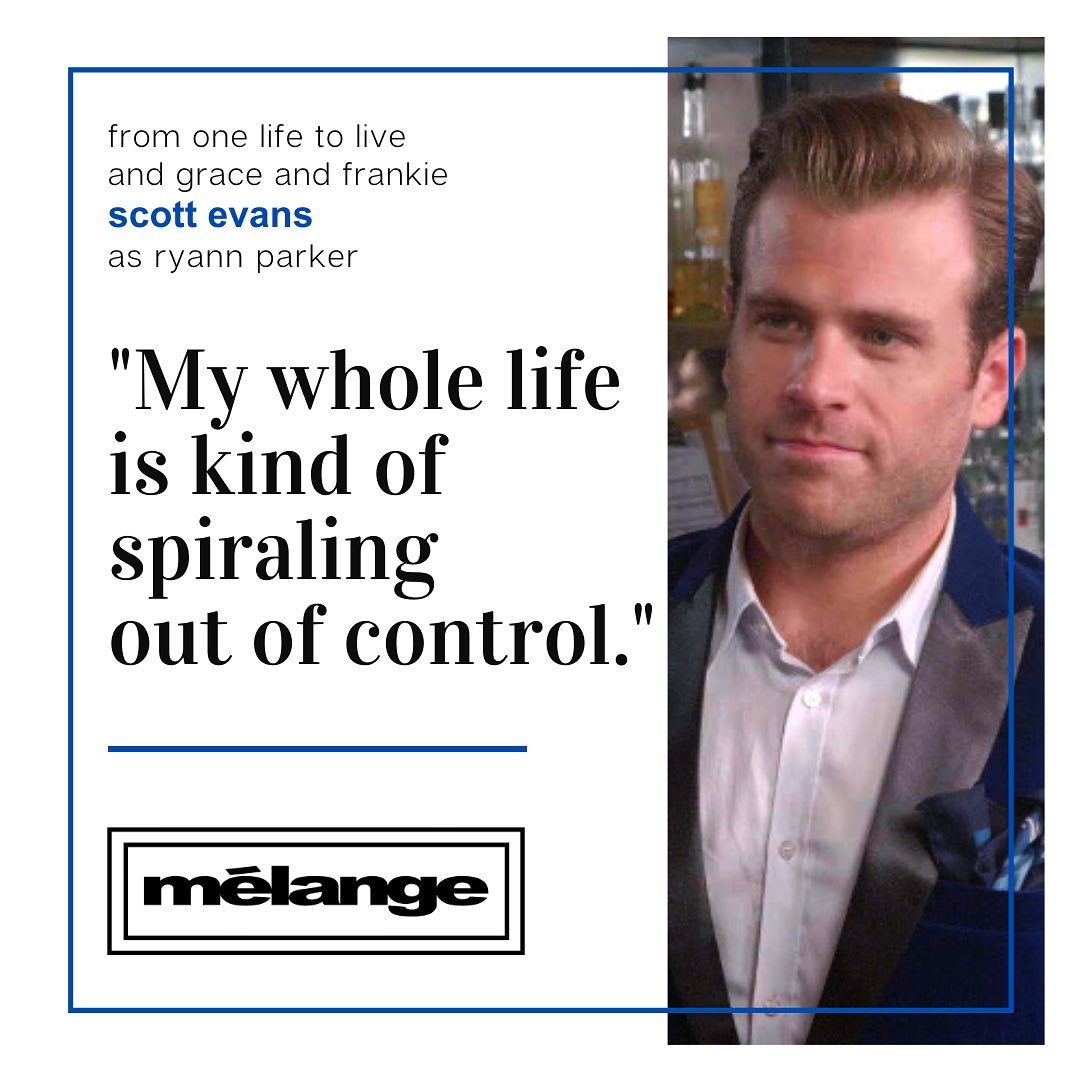
MF: When you come up in the business the way that I did, the morale is such a big part of it. It was a hard shoot, between the heat and the waiting. When your name is above the title, you feel like part of your job is to keep the morale up with everyone. When you are ready for action, everyone is ready to go. I was raised that the show comes first and you are part of an ensemble no matter what your part is. You are important; I wanted everyone to feel that way.
MC: The scene when you first enter Mélange was very profound. You are headlining a production with a myriad of performers that are prominent members of the LGBTQ community, and the production makes a point to showcase those people. You have gotten to see the evolution of Hollywood in this respect. Is it surreal to look around and see the Hollywood that is here now and see how much has changed?
MF: Yes, and it is really great. I grew up in the theater and so many friends of mine in Los Angeles had to hide. I was Rock Hudson’s date to his Lifetime Achievement Award, about six months before he started on Dynasty. They called me and asked me if I would be Rock’s date last minute and I said “of course, I am not letting that lovely man walk in without a glamour girl on his arm”! America did not realize Rock was gay, but everyone in town knew Rock was gay. I was not going to let him be put in that position of being there by himself at his own Lifetime Achievement Award.
I had numerous male friends who I would go to events with and I was basically “the beard” for PR for the show, they did not want people to know. People would try to paint us as a romantic couple and we would privately laugh about it. It is nice to see people being able to be out and still be cast. That was always the scary thing for coming out as a gay or lesbian, that you would not be cast if people knew. That is kind of ending now and that is great to see people having more fun. It is also more workable, you can make a living without having to hide about who you are.
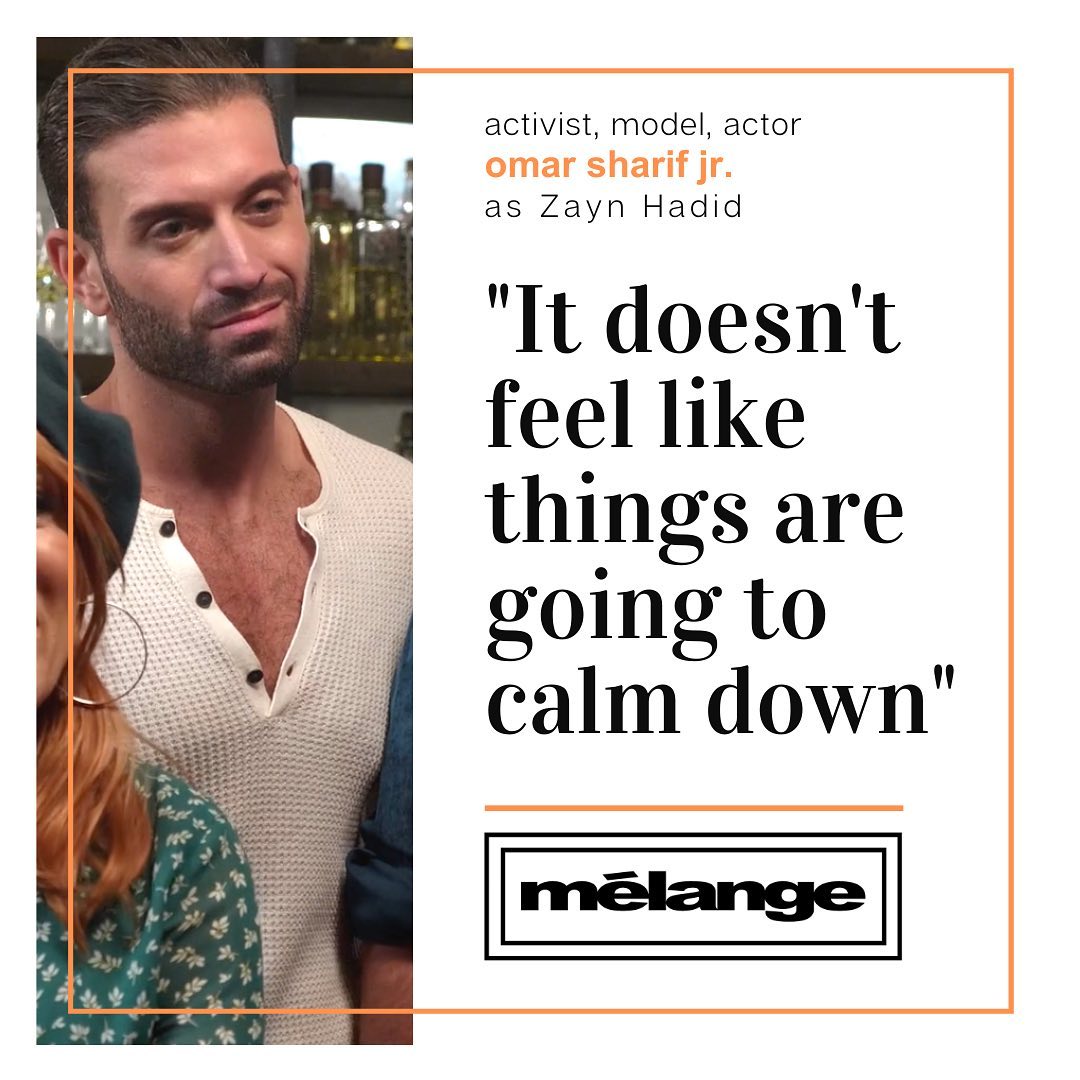
MC: You were and continue to be one of the most outspoken advocates for HIV/AIDS and for the LGBTQ community as a whole. Do you see that as your legacy?
MF: I was at the forefront of the AIDS movement. One of my odd hobbies is emerging viruses and epidemiology. I already knew a lot about the virus when Rock got sick and as soon as I had heard that Rock was not looking well on the Dynasty set I knew exactly what it was. I always remember that..(pauses)… it was at that time, I really cost myself a lot of work. I felt a moral obligation to go out and be very public about it. I knew that I was the only famous face that would go on Nightline and explain what a retro virus is and how it works and how it doesn’t. Suddenly I am the go-to girl for Nightline, the first town hall that Nightline ever did was five hours with a bunch of Congressmen and doctors and me. I was there for the unveiling of the AIDS quilt. I was there for the unveiling of the first AIDS veterans wing in New York City with Mayor Koch. I kind of took it on the head for that.
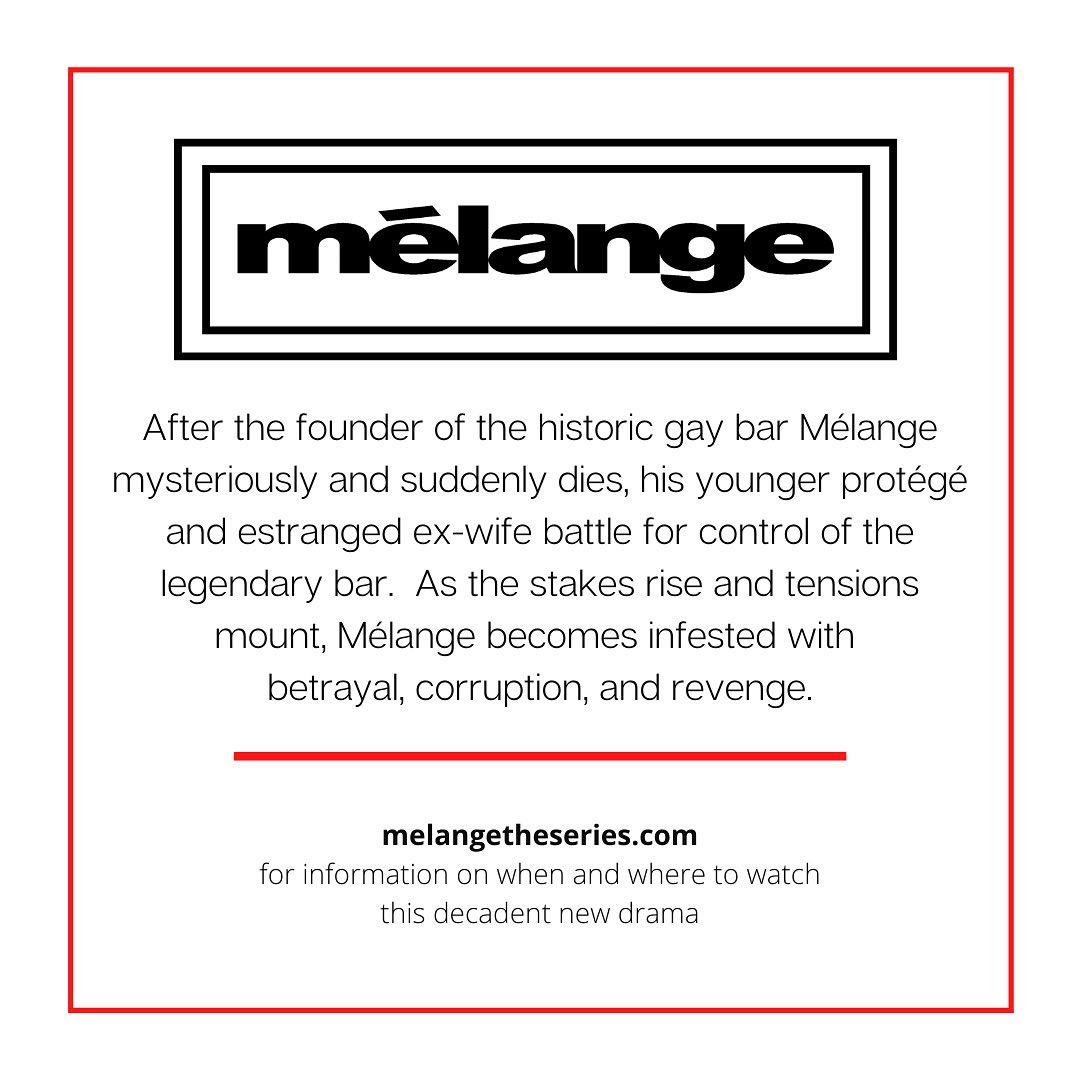
MC: What was it like being that much of an advocate for the community at that time in Hollywood?
MF: During that time, a friend of mine called me when Rock was still alive and said that they wanted to do an article on Hollywood Fights Aids for a major magazine and asked if I would do a group picture, I of course, said sure. He thanked me profusely two weeks later and when I aksed why, he said that everyone else had turned him down until I said yes; I was the lynchpin to get everyone to get on board. I spent a lot of the eighties doing just that. I took the hit on the front and make it safer for everyone else to come out. I testified before Congress for AIDS funding, did several tv specials, one in the 90’s with Barbara Walters on AIDS, it was really a long haul. I wanted to get the stigma off of it. I didn’t want it to just be the “gay disease”, which is what they were calling it. It was a disease that happened to hit the gay community first, which is what I was trying to explain when I testified before Congress. One weaselly congressman said “Well Miss Fairchild, how many of my straight, heterosexual constituents are ever going to get this disease”? I looked at him and said ”this is a disease. It does not recognize race gender or your constituents state lines. It is going to hit who it is going to hit”.
It was a long haul, but it was the best thing that I ever did. It cost me a lot of work, I heard that from people later on. I was actually at a dinner several years ago with a guy that had been in casting and he said to me “I know it cost you work because I was in those rooms. Your name would come up and people would say you were too controversial with all of the AIDS stuff”. He went on to say tearfully “I feel really bad because I didn’t defend you”. It was bad back then; younger people don’t have any idea how bad it was. How we lost so many people. The stigma was so bad…
MC: Speaking of, you actually worked with Dr. Fauci, who is leading the charge against COVID-19 right now.
MF: My work with AIDS is how I know Dr Fauci, who is at the front of COVID-19 now and was at the forefront of AIDS then. We were working hand in glove back then. I’ll tell you this; anything Fauci says about this virus, you take it to the bank. He is a real straight shooter and a great guy, a fabulous human being. All he cares about is the disease, not the politics. He and I went through the wars together back then, along with C. Everett Coop who was the Surgeon General back then. A lot of people don’t realize, C. Everett Coop was appointed by President Reagan because he was anti abortion and was a pediatric surgeon. When AIDS came up, he stepped up to the plate and I think wanted to be the Secretary of Health & Human Services, but he knew he would never get that position if he took that stand on AIDS. He did it anyway. I saw a lot of real heroism and setting aside any personal aspirations at that time to step up against the disease and for the gay community. These are my friends dying, people I grew up with in the theater that are dying. Rudy Nureyev, who was my God growing up, died from it. It was the best thing that I ever did; it cost me a lot of work, but it was the best thing that I ever did with my life. At least I know that getting the AIDS funding out of Congress and getting a lot of that done, a lot of lives were saved over a lot of years.
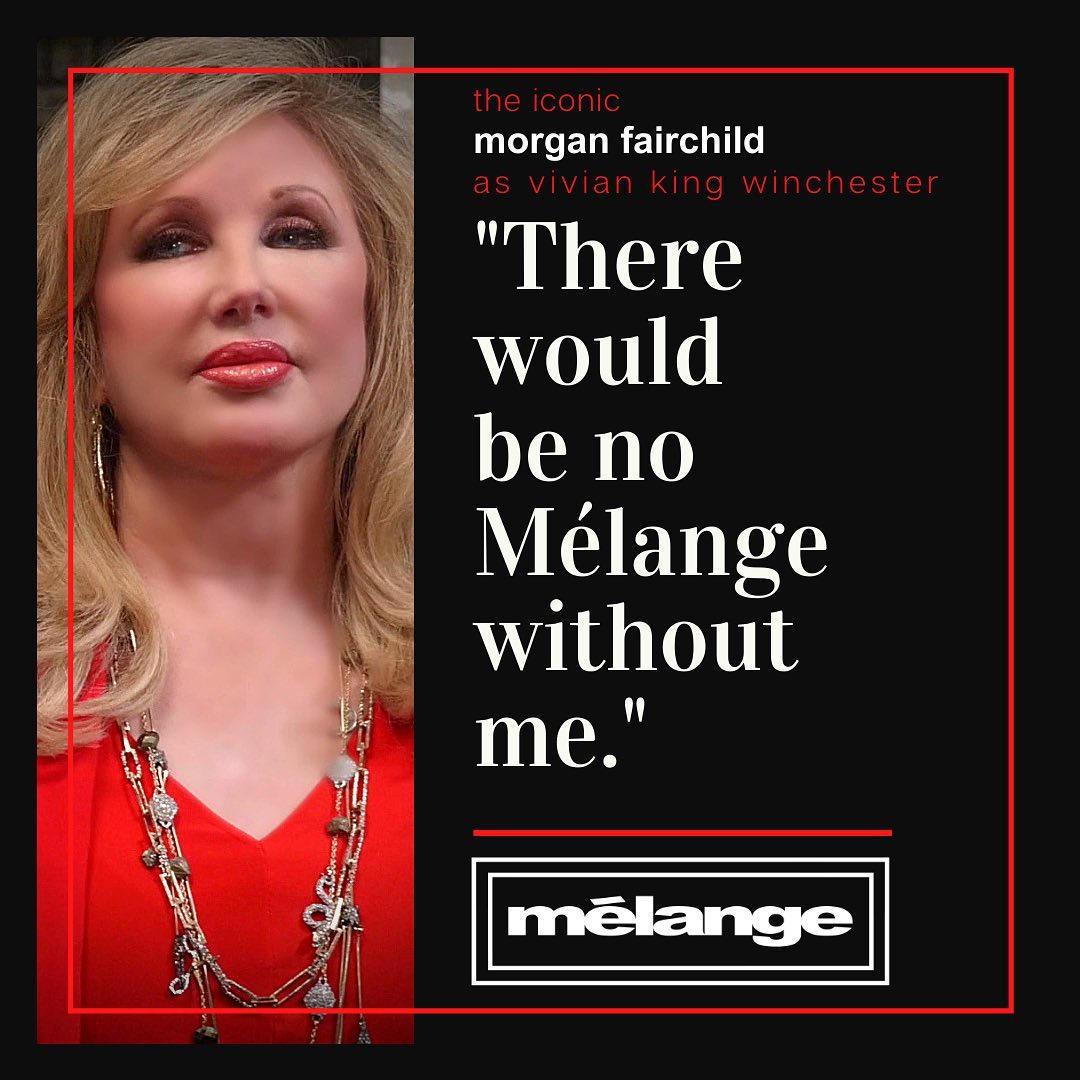
MC: So Mélange has officially kicked off; do you both think that there is a place for serialized drama right now and what is the place for it?
MF: Back in the day, they would call them soap operas but basically it is any continuing storyline, a serialized storyline. That could be Empire, Killing Eve, a lot of the shows right now are really serialized dramas. All of these hit shows are continuing shows, not stand alone episodes, so that you have to watch every week to see what is going on. It is the old fashioned way of storytelling where you just keep going and telling more stories and coming up with more interesting things for more characters to do. It is a more prominent format right now without calling any of those shows “soap operas”
TD: Clearly it is with Viacom (laughs). I think the place is everywhere. We need escapism more than ever. I think considering we have to watch a reality show in the White House on a daily basis, I think people are looking back to scripted drama again, which I am thrilled about. We have the brilliant actors who can do it a lot better without hurting people. I think it belongs everywhere right now and we need escapism and we need to be done with the reality a bit.
Keep Up With All Mélange Updates over at Mélange’s Facebook page

I LOVED THE INITIATION OF SARAH!!!! Morgan’s character was MEAN but she got hers in the end lol